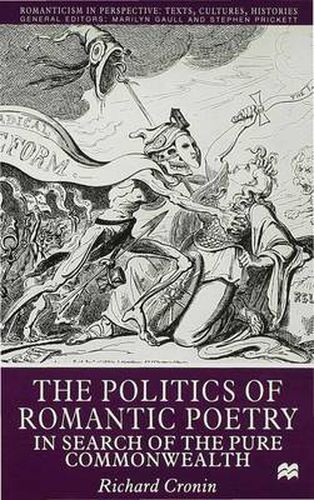Readings Newsletter
Become a Readings Member to make your shopping experience even easier.
Sign in or sign up for free!
You’re not far away from qualifying for FREE standard shipping within Australia
You’ve qualified for FREE standard shipping within Australia
The cart is loading…






This title is printed to order. This book may have been self-published. If so, we cannot guarantee the quality of the content. In the main most books will have gone through the editing process however some may not. We therefore suggest that you be aware of this before ordering this book. If in doubt check either the author or publisher’s details as we are unable to accept any returns unless they are faulty. Please contact us if you have any questions.
Critics of Romantic poetry have divided into two groups that have little to say to one another. One group, as yet the most numerous, insists that to study a poem is to investigate the historical circumstances out of which it was produced, the other retorts that poetry offers pleasures fully available only to readers whose attention is focused on language. This book attempts to reconcile the two groups by arguing that a poet’s most effective political action is the forging of a new language, and that the political import of a poem is a function of its style.
$9.00 standard shipping within Australia
FREE standard shipping within Australia for orders over $100.00
Express & International shipping calculated at checkout
This title is printed to order. This book may have been self-published. If so, we cannot guarantee the quality of the content. In the main most books will have gone through the editing process however some may not. We therefore suggest that you be aware of this before ordering this book. If in doubt check either the author or publisher’s details as we are unable to accept any returns unless they are faulty. Please contact us if you have any questions.
Critics of Romantic poetry have divided into two groups that have little to say to one another. One group, as yet the most numerous, insists that to study a poem is to investigate the historical circumstances out of which it was produced, the other retorts that poetry offers pleasures fully available only to readers whose attention is focused on language. This book attempts to reconcile the two groups by arguing that a poet’s most effective political action is the forging of a new language, and that the political import of a poem is a function of its style.